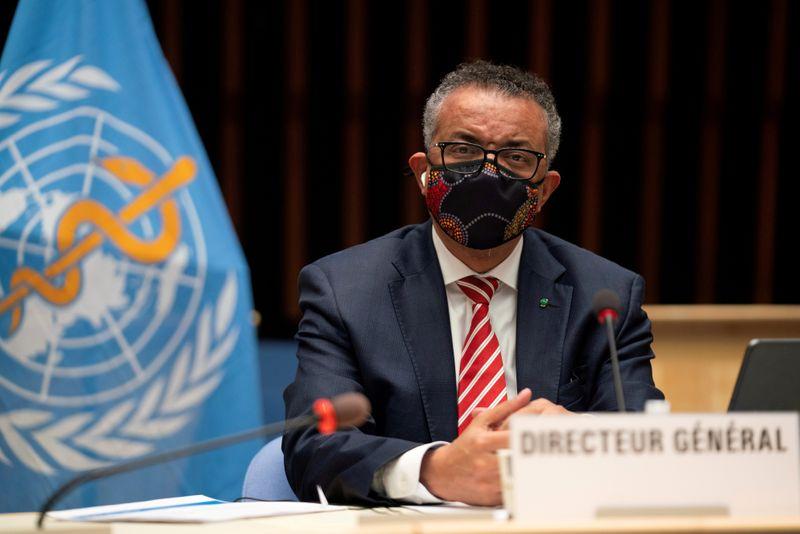
WHO says virus origins report will be released on Tuesday
All hypotheses are on the table and warrant complete and further studies, says WHO Chief Tedros Adhanom Ghebreyesus
GENEVA:
The head of the World Health Organization (WHO) said that a long-awaited report into the origins of the new coronavirus following a mission to China where the virus first emerged will be released publicly on Tuesday (March 30) but that further study is required.
Asked to comment further on its conclusions, Tedros Adhanom Ghebreyesus said: "As I have said all hypotheses are on the table and warrant complete and further studies."
German international development minister Gerd Mueller said at the same briefing that he welcomed China's cooperation with the probe, which took place in January-February.
Earlier, The WHO exhorted the world to keep administering AstraZeneca’s Covid-19 shots on Friday, adding its endorsement to that of European and British regulators after concerns over blood clotting.
“We urge countries to continue using this important Covid-19 vaccine,” WHO Director-General Ghebreyesus told a news conference in Geneva.
He was speaking after the global health body’s vaccine safety panel said available data about the AstraZeneca shot did not point to any overall increase in clotting conditions.
Read more: Keep using AstraZeneca vaccine, WHO urges world
European and British regulators also said this week that the benefits of AstraZeneca’s shot outweighed the risks, prompting various nations to lift their suspensions.
“The AstraZeneca vaccine is especially important because it accounts for more than 90% of the vaccines being distributed through COVAX,” Tedros added, referring to a WHO-led global vaccine-sharing scheme.
“There is no question. Covid-19 is a deadly disease, and the Oxford-AstraZeneca vaccine can prevent it. It’s also important to remember that Covid-19 itself can cause blood clots and low platelets.”
The WHO’s global advisory committee on vaccine safety said in a statement that the AstraZeneca vaccine had a “positive benefit-risk profile” and “tremendous potential” to prevent infections and reduce deaths.
The WHO panel of 12 independent experts, who met virtually on Tuesday and on Thursday, reviewed safety data from Europe, the United Kingdom, India, and WHO’s global database.
“While very rare and unique thromboembolic events in combination with thrombocytopenia, such as cerebral venous sinus thrombosis (CVST), have also been reported following vaccination with the AstraZeneca Covid-19 vaccine in Europe, it is not certain that they have been caused by vaccination,” it said.





1732101971-1/Copy-of-Untitled-(53)1732101971-1-270x192.webp)









COMMENTS
Comments are moderated and generally will be posted if they are on-topic and not abusive.
For more information, please see our Comments FAQ